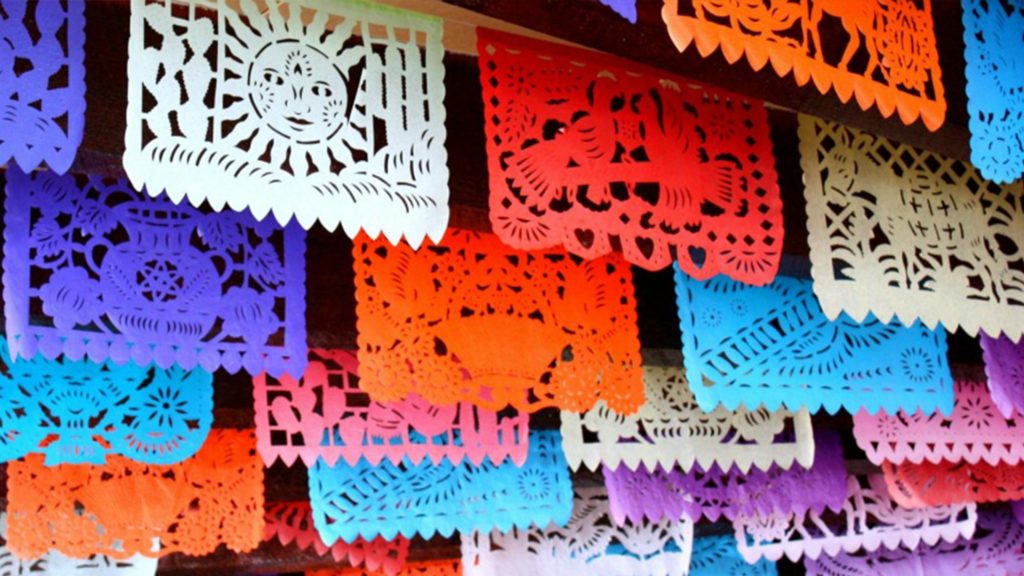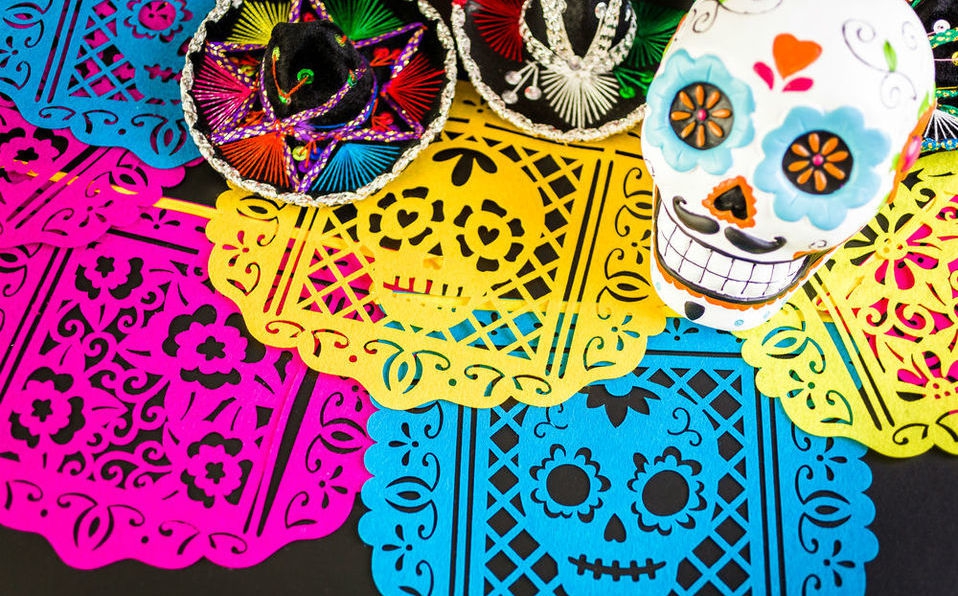The secret story about papel picado + Do It Yourself
Mexican culture has a colorful spirit in its traditions and a millennial meaning under each one, of course, one of the most important in the world is the Day of the Dead and its renowned altar.
Each element of this beautiful tradition has an important meaning, which is directly linked to the pre-Hispanic, spiritual, and religious vision of the world. One of the essential elements in the Day of the Dead altar is the papel picado or perforated paper since it connects symbolically with the rest of its components, and it is also used in other festivities as decoration, for example at birthdays, weddings, fairs, national holidays and Christmas times.

The beginnings in Mexico
The art of perforated originated in China, therefore, tissue paper or rice paper is traditionally used for its elaboration. Its diffusion took many years to reach Mexico because, with the Spanish conquest, this material began to be worked by local artisans.
To be more specific, the town of San Salvador Huixcolotla in Puebla is the precise place where this colorful handicraft began to be made, which was soon commercialized throughout the country for all kinds of decorations.
Why is it used on the Day of the Dead?
While the technique we now know originated on the other side of the world, pre-Hispanic cultures used a special paper made from the amate tree as a gift to their gods. This tree was related to the underworld and it was said that through it, the world of the living and the dead was connected.
Over time and after the arrival of the Spanish, that paper was replaced by tissue paper, giving a new meaning to the altar: the wind that guides souls.

Multicolor meaning
The variety of colors of the papel picado, in addition to giving that peculiar traditional Mexican touch to the Day of the Dead altar, has a meaning that depends on the intention that you want to give it.
- White: Highlights the purity of children’s souls
- Orange: For the Aztecs, it was the color of mourning, today it is associated with the light that guides souls
- Purple: In the Catholic religion this is the color of mourning, it is added in the offerings referring to that cultural mix
- Blue: Represents those who died from causes related to water. In pre-Hispanic times it was said that these souls went to Tlalocan, one of the 13 Aztec skies
- Red: As a tribute to the men who died in the war
- Green: It is the color that refers to young souls
- Yellow: Used to remind elderly spirits
- Black: Refers to the color of the underworld and the special connection that the Day of the Dead has
- Mexican pink: Being a representative color of the culture of Mexico, it refers to the national roots
Do It Yourself
Although the artisan technique has a specific process, we share a document with some templates that you can easily cut out to create your papel picado for any special occasion.



